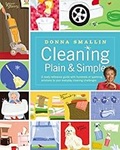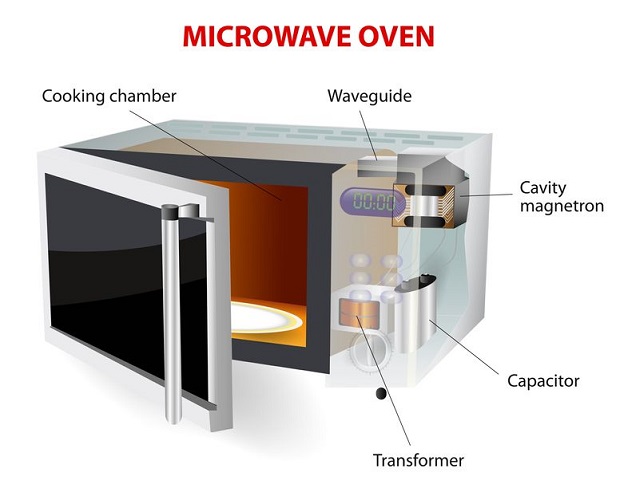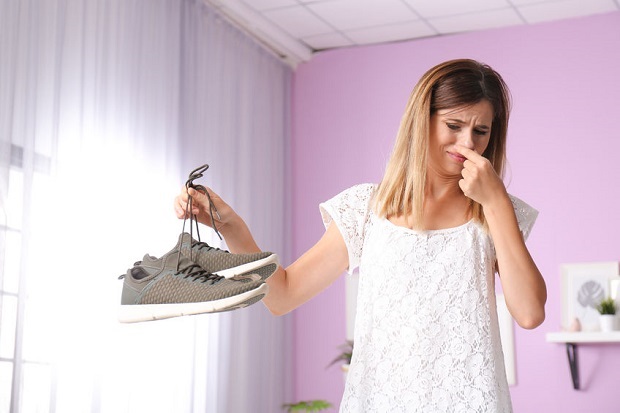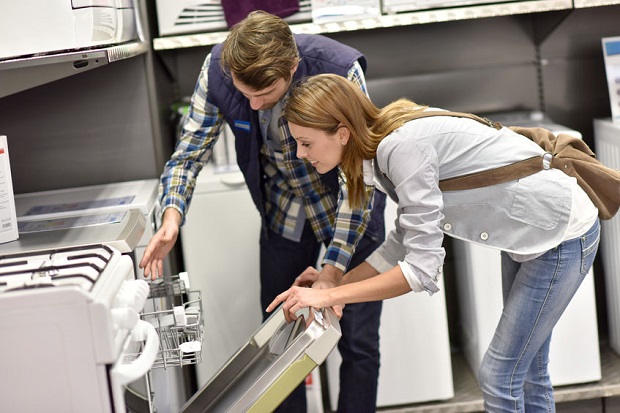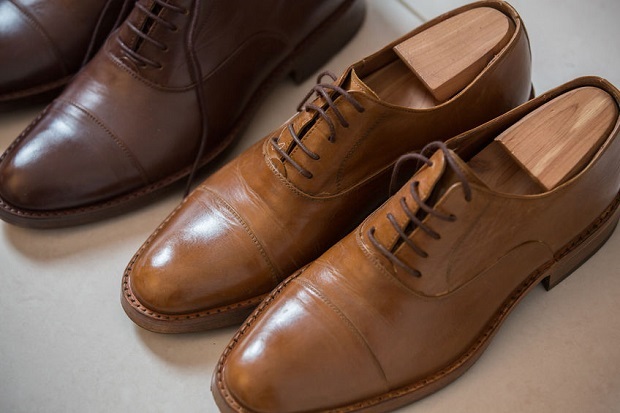
Does Vinegar Kill Mold?
Yes, vinegar is a potent mold killer. In a lighthearted interview with CBS’s “48 Hours” (Dec. 2000), cleaning expert Heloise shared a long-standing question she had been pondering for years: Can vinegar effectively eliminate mold? This curiosity led the producers to Good Housekeeping’s microbiologist, Gina Marino. In an impromptu experiment, Marino placed mold in the grout of tiles and allowed it to grow for a few days. The results were clear: 5% household vinegar solution successfully eradicated 90% of the mold. [1]
While the report did not specify the conditions under which Marino conducted the experiment or how she measured the results, it did indicate that vinegar does kill mold to some extent. However, it’s crucial to note that vinegar may not be effective for all types of mold or in all situations.
Jump Ahead
- Killing Mold In Small Areas
- Vinegar Recipes and Tips for Everyday Household Mold
- Never Use Vinegar to Clean These Items
- Cleaning Mold in Large Areas Can Be a Health Concern
- Resources
Killing Mold In Small Areas
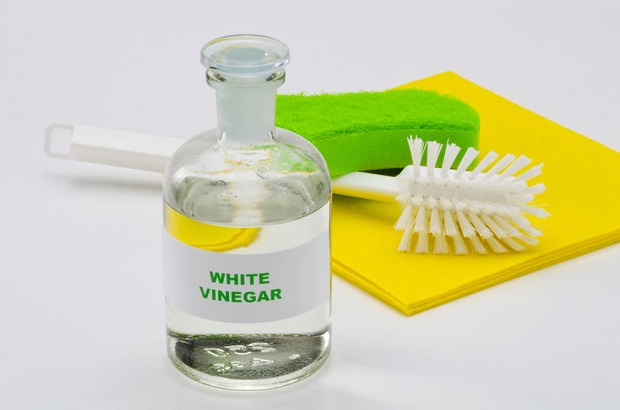
With the Environmental Protection Agency advising against the routine use of bleach during mold remediation, vinegar emerges as a safe and environmentally friendly alternative for homeowners. [2]
The Maids Professional Housecleaning company suggests that when using vinegar to eliminate mold, the following procedures should be followed. [3]
- Using a spray bottle, pour in straight vinegar.
- Spray the entire area that is affected by mold.
- Leave the vinegar on the area without rinsing and allow the area to dry naturally.
- Wipe the area thoroughly with water and allow to air dry.
- The smell from the vinegar will disappear over a short period.
Vinegar Recipes and Tips for Everyday Household Mold
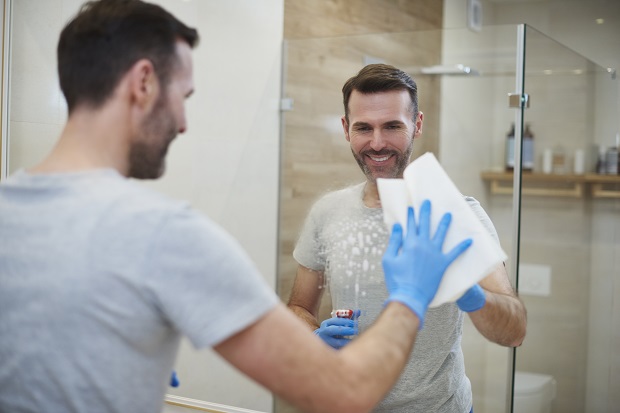
A brief search through the published books on household cleaning tips reveals several hints about using vinegar to remove mold around the house. Here are a few. (Keep in mind that vinegar is acidic and has the potential to ruin surfaces – see below)
Donna Smallin, author of “Cleaning Plain & Simple: A Ready Reference Guide with Hundreds of Sparkling Solutions to Your Everyday Cleaning Challenges,” advises, “Pour distilled white vinegar into a spray bottle and spray it directly onto the moldy area. Let the vinegar sit without rinsing it off.” [4]
Dionna Ford and Mandy O’Brien, authors of “Homemade Cleaners: Quick-and-Easy, Toxin-Free Recipes to Replace Your Kitchen Cleaner, Bathroom Disinfectant, Laundry Detergent, Bleach, Bug Killer, Air Freshener, and More,” share this simple mold and mildew cleaner recipe. [5]
General Mold and Mildew Cleaner
- Spray Bottle
- 2 Tablespoons Borax
- 2 Cups Warm Water
- 1/4 Cup White Distilled Vinegar
Add warm water to a spray bottle. Add the borax and shake until dissolved. Next, add the vinegar. Spray the solution on surfaces affected by mold or mildew. Let sit for a few minutes, then scrub away with a sponge or scrub brush.
Melodie Moore, author of “Complete Idiot’s Guide to Household Solutions,” shares this household tip to prevent mold and mildew buildup on your shower curtain. [6]
Preventing Shower Curtain Mold
- Spray Bottle
- Water
- Vinegar
Fill a spray bottle with a solution of half water and half vinegar. Spray the solution on your shower curtains and allow to dry to prevent mold and mildew from forming.
Never Use Vinegar to Clean These Items

Consumer Reports lists nine household items you should not clean with vinegar to avoid damage. [7]
- Clothes Iron
- Countertops
- Dishwashers
- Electronic Screens
- Hardwood Flooring/Stone Tile
- Kitchen Knives
- Cooktops/Ranges
- Small Appliances
- Washing Machines
Cleaning Mold In Large Areas Can Be a Health Concern

The EPA strongly cautions the importance of limiting exposure to mold and mold spores. Cleaning mold releases mold spores into the air, which can become a health concern if inhaled. The agency advises to avoid breathing in mold spores and suggests wearing gloves and goggles. If you have a mold issue, you should contact a professional. [8]
References
- [1] CBS News – “Heloise Hears A Hint.“
- [2] Environmental Protection Agency – “Should I Use Bleach to Clean Mold?“
- [3] The Maids – “3 Non-Toxic Ways to Clean Mold – The Maids Blog.”
- [4] Smallin, Donna. Cleaning Plain & Simple: A Ready Reference Guide with Hundreds of Sparkling Solutions to Your Everyday Cleaning Challenges. United States, Storey Publishing, LLC, 2020.
- [5] Ford, Dionna, and O’Brien, Mandy. Homemade Cleaners: Quick-and-Easy, Toxin-Free Recipes to Replace Your Kitchen Cleaner, Bathroom Disinfectant, Laundry Detergent, Bleach, Bug Killer, Air Freshener, and More. United States, Ulysses Press, 2014.
- [6] Moore, Melodie. Complete Idiot’s Guide to Household Solutions. United States, Alpha Books, 1998.
- [7] Consumer Reports – “9 Things You Should Never Clean with Vinegar.“
- [8] EPA – “A Brief Guide to Mold, Moisture and Your Home – What to Wear When Cleaning Moldy Areas.“
